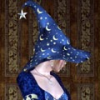attach skeleton?
 Mistara
Posts: 38,675
Mistara
Posts: 38,675
carrara has it's own weightmapping, right?
does it save with the skeleton?
can we share a skeleton with the weightmapping in the file when we attach skeleton?
wondering how it works 


Comments
I think Wendy attaches clothing mesh to existing skeleton (occupied by a figure, for example) if that's what you mean
Always wanted to try it, but never had the need yet
was thinking like a rerig for the mil dragons
If we want to remove the current rig (so that we can apply a new one):
If we have Fenric's Posing Pack 3 we can use the Unlock feature, then select Model, then Animation > Remove Skeleton, then drag Model away from the hierarchy. Voila.
What I haven't tried, however, is to then do that to another figure and then attach the first Model to a different Skeleton. But, yeah... we can remove the skeleton and make our own.
If we don't have Fenric's Pose Pack 3, we can still do it by simply exporting the figure as an OBJ, then bring it back in as an OBJ. Model that needs a rig.
Please try not to kill any dragons in your experiments!
I haven't considered doing this. Cool idea Misty. The Millennium SubDragon never worked for me because of the way the teeth slant when I open his mouth. It just looked really goofy in my animations.
Also note that most figures (pre genesis) are shipped as OBJ's ,. so check your Runtime / Geometry folder before you export a new obj.
Any model can be rigged in carrara,. with as many bones as you like,. (including facial animation bones, or bones to add bounce to parts,. like fat belly's)
Once you have a Rigged model,. you'll also have a "Fit To" option which you can use to fit this rig to another duplicate rig (to create conforming items)
for example,. you make a model and rig it, and make that (model and bones) into an "Animated group"
you can then detach and duplicate the skeleton,. attach it to another model (eg: clothing)
then use the "Fit to" option for that new clothing figure to fit it to your main figure.
In Carrara,. You can create your own figures,. rig them,. create clothing for that figure,. using the same skeleton as the main figure,. to create "conforming clothing"
all of this can be saved in a carrara scene file,. and shared with other carrara users.
Carrara isn't dependent on premade figures,. it's just easier for most people to start by using premade models which are already rigged, UV'd, Textured and ready to animate.
That's right! LOL Why did I forget to mention that?!!! That's the easiest/fastest way yet! Silly me!
weightmapping is murky, in any app, lol
Carrara's pretty darned cool. We can go through the various domains as we weight map and work in that way as well. But you're right. It takes a special person to get good at it.
weightmapping is generally the same in most apps,. although there are now several "flavours" of weightmapping,.
The Bone start and end positions are used to create an invisible envelope which effects the surrounding mesh ,. so when the bone is moved,. that area of mesh moves with it.
like a magnetic force.
the strength of that force, and what area of the mesh is effected by the bone,. is called weighting,.
Normally the default weighting which is applied automagically to the mesh when you attach the skeleton is good enough for most purposes.
Some areas like elbows / knees may need slight manual adjustment,. to get smoother bending.
Where you have a connnected set of bones,. like a spine or a limb,. there is a "fall off" area of influence between each of the bones ,.
Bones use the "vertices" of the mesh, so the density of the mesh around joints is relatively important for smooth bending.
increasing the amount of vertices in those areas can help with bending issues,. and you can also create a morph to allow more adjustment to the mesh shape when it's bent.
Model a simple stick figure ,. or something simpler,.. and attach a skeleton to get a better idea of how it works in practice.
you can detach the skeleton to edit the mesh and increase/decrease the geometry , then attach the skeleton to see how the geometry change effects how the bone influence effects the mesh.
most of the time, you shouldn't need to do much weight adjustment,. as long as the bones are in the right location for the mesh, the default weighting should be good enough.
The laborious part is setting the constraints and limits for each of the bone joints. although its time consuming, setting those correctly will allow your model to be animated more realistically.
I can't get "fit to" to work for my custom figures, even if I start with a copy of the same rig. Not sure why.
However, attaching a mesh to the same skeleton as the figure, as per Wendy above (described in Dart's post) has worked fine, and using VWD has worked fine.
Some explanation and examples follow the linked post. https://www.daz3d.com/forums/discussion/comment/3254386/#Comment_3254386